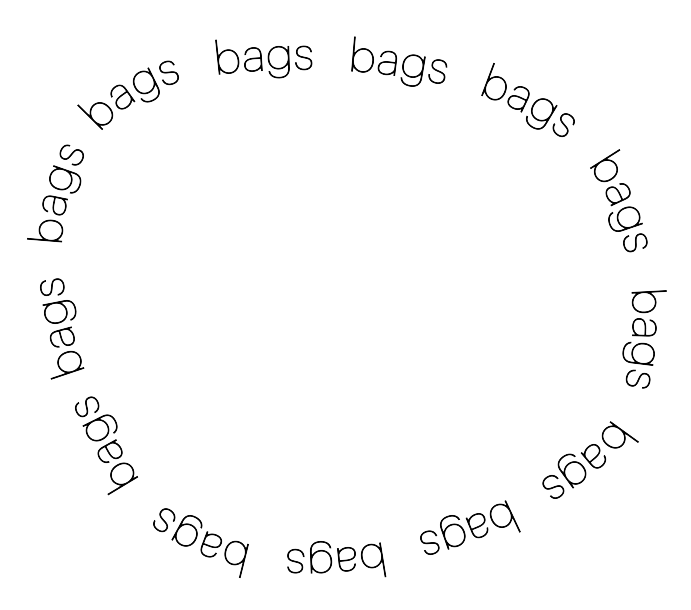Mending As Worldbuilding
Syllabus
Weaving together fiction narrative techniques with standpoint theory and repair-oriented design practices, this course uses mending as a form of world-building. Over the course of six meetings across two weeks, each student will identify an object in need of repair (on the scale of something that could be picked up) and repair it. Here, ‘repair’ does not seek to restore past conditions, but adapts to future ones — it is a transformative act of care. Through actively repairing the object by material intervention, we will also speculate on repairing the larger systems and networks that this object is part of. Each of us will create a research-based cast of characters who interact with the object. Finally, through images and words, each person will craft a story that weaves together these pieces (the object, the characters, and the systems), building a world through the act of mending.
*Class times may be adjusted to fit everyone’s time zones after the first class meeting 🕰
Monday, 01.04 / 3-6pm - Repair Practices
Bring: 1-2 things to mend or repair.
Read (only the pages indicated; whole pdf is optional):
- Mabel Wilson, Radical Repair in Log 48 Expanding Modes of Practice, p.21-26
- Kader Attia, Repair: Architecture, Reappropriation, and The Body Repaired, 2013. p.5-6
- Shannon Mattern, Maintenance and Care: A working guide to the repair of rust, dust, cracks, and corrupted code in our cities, our homes, and our social relations. p.1-4,16. [but honestly, all]
- Steven Jackson, Rethinking Repair p. 221-223, 227-231.
Optional:
- Jerome Denis, David Pontille. Beyond breakdown: Exploring Regimes of Maintenance. P.13-16.
- Graham and Thrift, Out of Order: Understanding Repair and Maintenance. P.1-7, 11.
- Lisa Parks, Media Fixes: Thoughts on Repair Cultures. https://www.flowjournal.org/2013/12/media-fixes-thoughts-on-repair-cultures/?print=print
- H.R. 40 - Commission to Study and Develop Reparation Proposals for African-Americans Act.
Wednesday, 01.06 / 3-6pm - Standpoints
Bring: Come up with 3-5 characters.
Read (only the pages indicated; whole pdf is optional):
- Loira Limbal, panelist for Care for the Future, Allied Media Conference. https://www.youtube.com/watch?v=pbgXp6O8oaU (from ~minute 37 to ~minute 51)
- Donna Haraway, Situated Knowledges: The science question in feminism and the privilege of partial perspective p.583-584, 589-590.
- bell hooks, Choosing the Margin as a Space of Radical Openness. p. 203-209, especially 206 onward.
- Hwang Sok-Yong, Familiar Things, p.8-14
Optional:
- Loira Limbal, Through the Night. 76 min documentary. https://www.throughthenightfilm.com/watch (~$10)
- Combahee River Collective Statement, p.1-11
Friday, 01.08 / 3-6pm - Time
Bring: A storyline that weaves together your characters and item.
Read (only the pages indicated; whole pdf is optional):
- Julio Cortazar, The Fantastic Short Story: Time (p.36-46)
- The Intercept + The Leap. A Message from the Future II: The Years of Repair. 8 min 57 seconds. https://www.youtube.com/watch?v=2m8YACFJlMg
Optional:
- Bruno Latour and Albena Yaneva, “Give Me a Gun and I Will Make All Buildings Move”: An ANT’s View of Architecture. p.80-89
Monday, 01.11 / 3-6pm - Realities
Bring: Revised storyline + frames.
Read (only the pages indicated; whole pdf is optional):
- Ursula LeGuin, The Carrier Bag Theory of Fiction (p. 165-170)
- Italo Calvino, Levels of Reality in Literature (p.101-102, 104-108, 111-113, 119)
- Octavia Butler, Conversation with Octavia at the end of Parable of the Sower. p.335-341. (more on Parable of the Sower)
Optional:
- Toni Morrison, The Site of Memory. p.91-99
- Italo Calvino, Invisible Cities. Clarice p.106-108 and Leonia p.114-116.
Wednesday, 01.13 / 3-6pm - Guests
Bring: Revised storyline + frames.
Read (only the pages indicated; whole pdf is optional):
- adrienne maree brown, Outro in Octavia’s Brood: Science Fiction Stories from Social Justice Movements. p.279-281 (more on Octavia’s Brood.)
- Read this quote: “Abolition requires that we change one thing, which is everything. Abolition is not absence, it is presence. What the world will become already exists in fragments and pieces, experiments and possibilities. So those who feel in their gut deep anxiety that abolition means knock it all down, scorch the earth and start something new, let that go. Abolition is building the future from the present, in all of the ways that we can.” - Ruth Wilson Gilmore (from https://thefunambulist.net/making-abolition-geography-in-californias-central-valley-with-ruth-wilson-gilmore in case you want to read all)
Optional:
- Hanna Kim (MDes ADPD ‘19), Lecture at UPenn. ~45 min
- Katie Gourley (MUP ‘19), It Starts with a Seed and/or Baking with the Flavors of Local Grains; or any other writings.
- Thandi Nyambose (MUP ‘21), Harlem, NYC Storymap (https://aadn.gsd.harvard.edu/places/harlem-nyc-storymap/) and Walter Hood Storymap (https://aadn.gsd.harvard.edu/places/walter-hood-storymap/)
- Hi-ilei Julia Kawehipuaakahaopulani Hobart and Tamara Kneese, Radical Care: Survival Strategies for Uncertain Times. p.1-13
- Anna Lowenhaupt Tsing, Mushroom at the End of the World, Arts of Noticing (Chapter 1) p.17-25
- Green Dreamer podcast, 278; Dr. Chelsea Mikael Frazier: Learning environmentalism through the lens of Black Feminism. 46 min.
- Eve Tuck, Suspending Damage: A Letter to Communities. p.419-421, p.422-424
- Ann Lui, Toward an Office of the Public Architect in Log 48: Expanding Modes of Practice. p. 39-52
Friday, 01.15 / 3-6pm - Stories
Bring: Revised storyline + frames.
